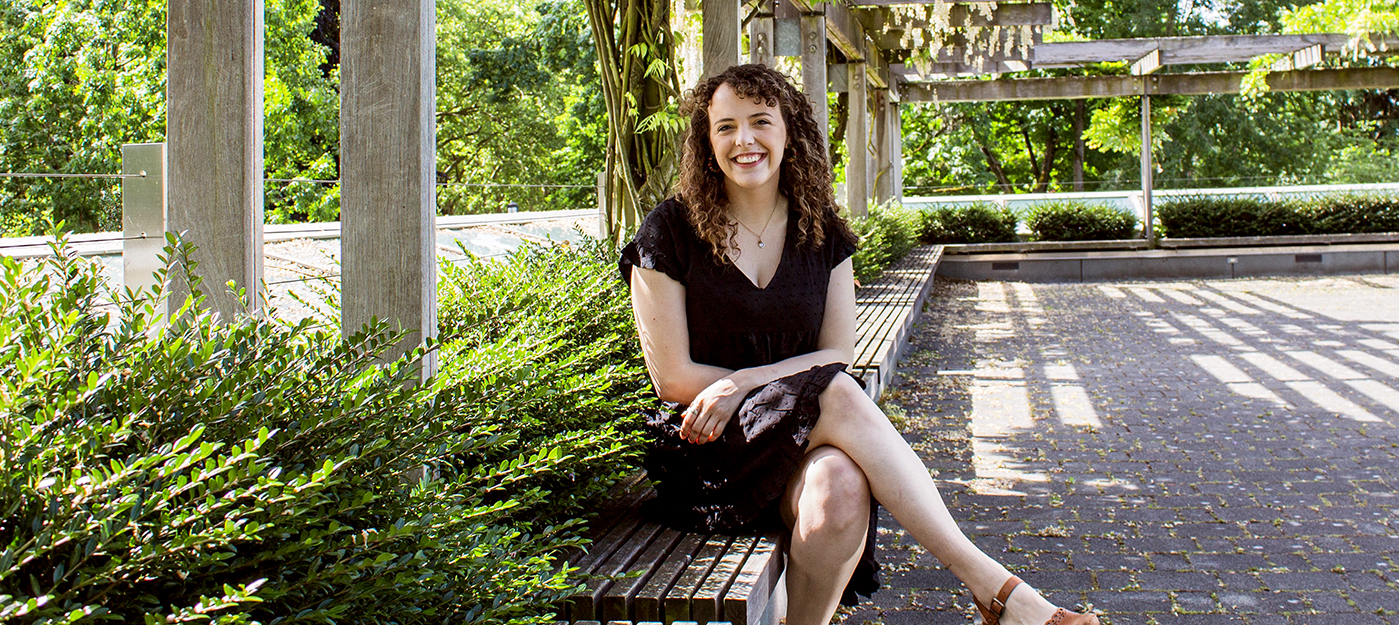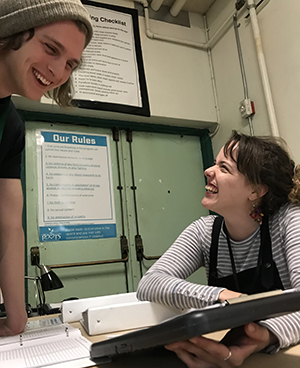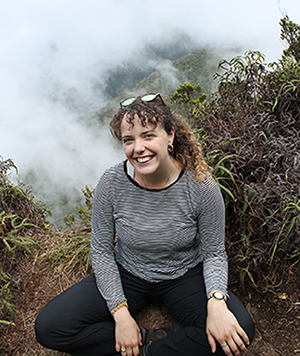
As a program manager at ROOTS, a shelter for young adults, Samantha Fredman had learned to expect the unexpected. Then came the coronavirus and an increased need for social services. Fredman’s hours at the shelter suddenly doubled. At the same time, she was busy completing UW coursework. She managed to do both, graduating this month with a major in law, societies & justice and a minor in diversity studies.
Fredman has been juggling academics and nonprofit work since her freshman year. From the start she planned to go to medical school, but she was undecided about an undergraduate major. Then she signed up for classes on human rights and discovered the Department of Law, Societies & Justice.
These are really important questions to be asking and things that I hadn’t necessarily been taught to think about before.
“I was really interested in the critical thinking they engage in, the questions they ask about how policies are implemented and impact the lives of people,” she says.
In an early LSJ course, Fredman wrote a paper about shelter as a human right and became aware of ROOTS, located in Seattle’s University District. She became a ROOTS volunteer, and then was hired for a volunteer supervisor position. During her junior year she was promoted to the role of program manager, responsible for the safety of all staff and clients inside the shelter during her shifts.
“When I started at ROOTS I was a freshman and a little nervous,” Fredman recalls. “I was mostly worried that I wouldn’t know how to connect with people. But everybody there was so open and welcoming. I very quickly got really engaged with the community there."

ROOTS serves individuals between the ages of 18 and 26 who need a place to shelter. Some are employed and saving up to afford housing in Seattle. Others may have left their home under difficult circumstances or are exiting foster care. Some struggle with mental illness or substance abuse disorders. About 20-40% are from the LGBTQ+ community. Many are people of color.
To help ROOTS volunteers engage with clients from diverse backgrounds, Fredman leads a training session titled The Ropes. “I like to think of that training as ‘How to be Human 101,’” says Fredman. “Some volunteers just have to be reminded that the people they are serving are not different from them, other than their housing status.”
Fredman’s work at ROOTS dovetailed with her academic coursework in LSJ and disability studies. In class she learned how policies may be applied to different groups of people unevenly, and how that inequity impacts people and communities. At ROOTS, she has seen the results firsthand.
“These are really important questions to be asking and things that I hadn’t necessarily been taught to think about before,” she says. “Learning to think through all the ways that policies can get diluted from their initial intentions has become a crucial part of my understanding of the world now.”
Fredman has explored such questions in courses on homelessness, mental illness, disability rights, and more. A month-long study abroad course in Jamaica — the first country to sign and ratify the UN Convention on the Rights of Persons with Disabilities — looked at disability advocacy on the island. Fredman was inspired to see the creative work happening there despite the country’s lack of resources.

As an Honors Program student, Fredman also took an Honors course on homelessness, citizenship, and relational poverty, a field that examines relationships of power and privilege — how racism, capitalism, and other societal issues create or impact poverty. She followed that up with a few graduate courses on the same topic, and also became involved the Relational Poverty Network, a collaborative research network led by geography professors Victoria Lawson — also the Honors Program director —and Sarah Elwood-Faustino. Last quarter Lawson tapped Fredman to serve as peer educator for an Honors course about homelessness in collaboration with the nonprofit Real Change, in which students organized an exhibition of portraits of unsheltered or homeless individuals.
As a counter to all these weighty issues, Fredman has been part of the University Chorale, an auditioned choir for non-music majors, all four years. “It’s important to have a way to express yourself that isn’t full of pressure,” she says. “Choir was that for me. It’s one of the things that I missed most with social distancing.”
Throughout her time at the UW, Fredman has received scholarship support, including the Greene Scholarship and a Mary Gates Achievement Scholarship, both through the Honors Program. The scholarships made it possible for Fredman to graduate without debt, which “is absolutely one of the best gifts I could have received,” she says. “It was also meaningful to me that I was chosen for these scholarships by faculty doing incredibly important work.”
In July, Fredman begins a new job as a mental health technician in a Seattle-area psychiatric hospital, with plans to apply to medical school in about three years. Asked whether she will miss working at ROOTS, she laughs.
“Oh, I’m not leaving ROOTS,” she says. “The people there are such a huge part of my community, I really don’t feel like I can leave.”
More Stories

AI in the Classroom? For Faculty, It's Complicated
Three College of Arts & Sciences professors discuss the impact of AI on their teaching and on student learning. The consensus? It’s complicated.

What Students Really Think about AI
Arts & Sciences weigh in on their own use of AI and what they see as the benefits and drawbacks of AI use in undergraduate education more broadly.

A Love of Classics and Ballroom
Michael Seguin studied Classics at the UW and now owns Baltimore's Mobtown Ballroom. The two interests, he says, are more connected than they might seem.